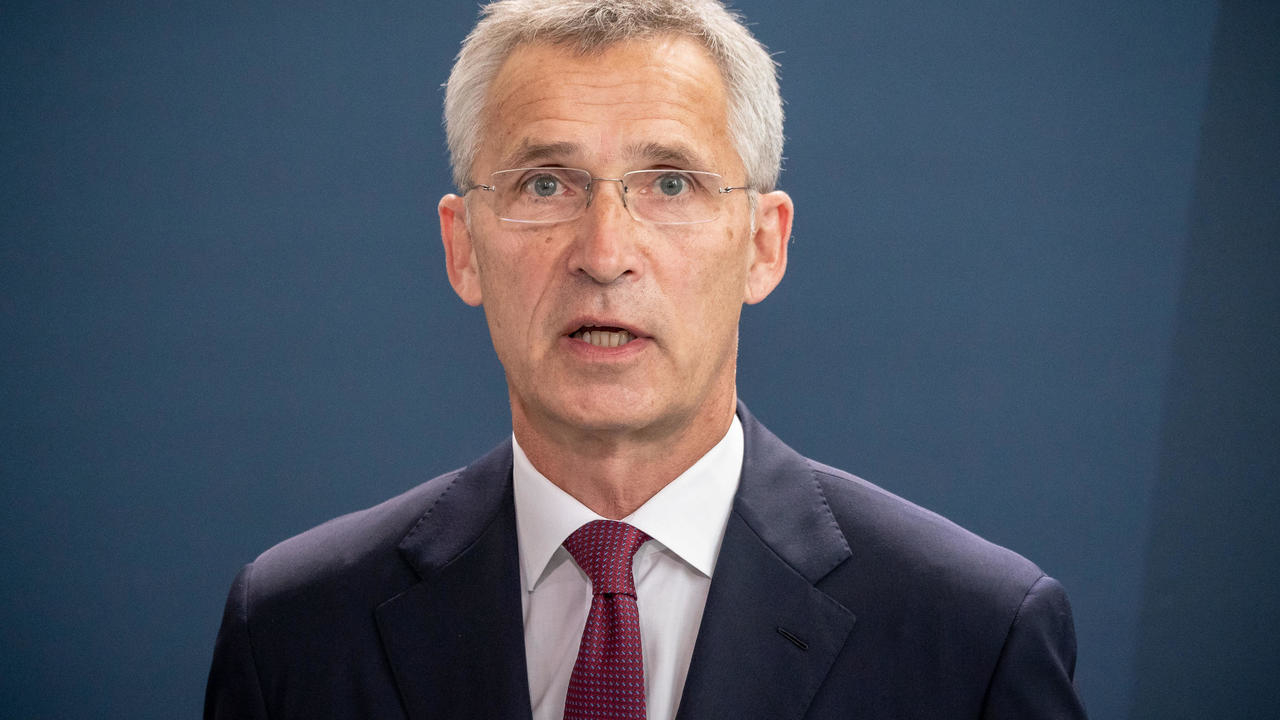NATO says Greece and Turkey agree to de-escalation talks, but Athens denies a deal

Issued on:
NATOs chief said Thursday that alliance members Greece and Turkey have agreed to start “technical talks” to reduce the risks of military “incidents and accidents” in the eastern Mediterranean, where the two are locked in a tense standoff over offshore energy rights.
Advertising Read more
But Athens quickly denied any such agreement, saying neighboring Turkey must first withdraw its ships from the area where it is carrying out gas and oil prospecting. Ankara, on the other hand, said it backs NATO Secretary General Jens Stoltenbergs initiative for military and technical talks and called on Greece to do the same.
Relations between the historic regional rivals have hit their worst point in 46 years — when their militaries briefly fought in Cyprus — after Ankara sent a research vessel, escorted by warships, in July into waters claimed by Greece and Cyprus. Turkey says it has every right to prospect there.
Greece placed its armed forces on alert and sent its own warships to the area, between the islands of Crete and Cyprus and Turkeys southern coast, while simulated dogfights between Greek and Turkish fighter pilots have multiplied over the Aegean Sea and the eastern Mediterranean.
Stoltenberg announced the possible diplomatic opening on NATOs website Thursday, the same day Turkey announced that Russia plans live-fire naval exercises this month in the eastern Mediterranean.
“Following my discussions with Greek and Turkish leaders, the two Allies have agreed to enter into technical talks at NATO to establish mechanisms for military de-confliction, to reduce the risk of incidents and accidents in the Eastern Mediterranean,” Stoltenberg said.
He added that “Greece and Turkey are valued Allies, and NATO is an important platform for consultations on all issues that affect our shared security.”
A Greek official told The Associated Press that talk of “alleged technical talks” at NATO “does not correspond with reality.”
“De-escalation would only be achieved with the immediate withdrawal of all Turkish ships from the Greek continental shelf,” he said. The official spoke on condition of anonymity as he was not authorized to comment on the record.
A Turkish Foreign Ministry statement said Turkey was ready for a dialogue to resolve disputes.
“We would like to take this opportunity to remind that our country is ready for a dialogue with Greece, without preconditions, in order to find permanent solutions that are just and fair to all issues between us within the framework of international law,” the statement read.
Germany has already launched a diplomatic effort for Ankara and Athens to engage in talks. Both insist they want to talk, but each on its own terms.
It is rare for members of NATO to require “de-confliction mechanisms” to avoid collisions or exchanges of fire. While often at loggerheads, the alliance has often urged Russia to continue to use military dialogue to avoid “incidents and accidents”, mostly between war planes or ships.
Still, its not the first time that Turkey has appeared close to a confrontation with one of its allies.
>> Troubled waters: Greek-Turkish escalations in the Mediterranean
On June 10, the French frigate Courbet was illuminated by the targeting radar of a Turkish warship that was escorting a Tanzanian-flagged cargo vessel. The French navy, acting on NATO intelligence, suspected the cargo ship was violating the arms embargo on Libya.
Turkish officials said a NATO probe into the incident was “inconclusive”. NATO has not made its findings public.
Earlier, Turkey announced the Russian naval exercises in a navigational notice that said they would take place Sept. 8-22 and Sept. 17-25 in areas where the Turkish energy exploration is being carried out. Greek and Turkish armed forces held their own exercises in the same area last month.
There was no immediate comment from Moscow on the exercises, which Turkey announced after the United States said it was partially lifting a 33-year-old arms embargo against ethnically divided Cyprus.
Its unclear why NATO-member Turkey announced such drills on Russias behalf, but the two countries have in recent years significantly strengthened their military, political and economic ties. They are coordinating closely on their militarRead More – Source
[contf]
[contfnew]

france24
[contfnewc]
[contfnewc]



